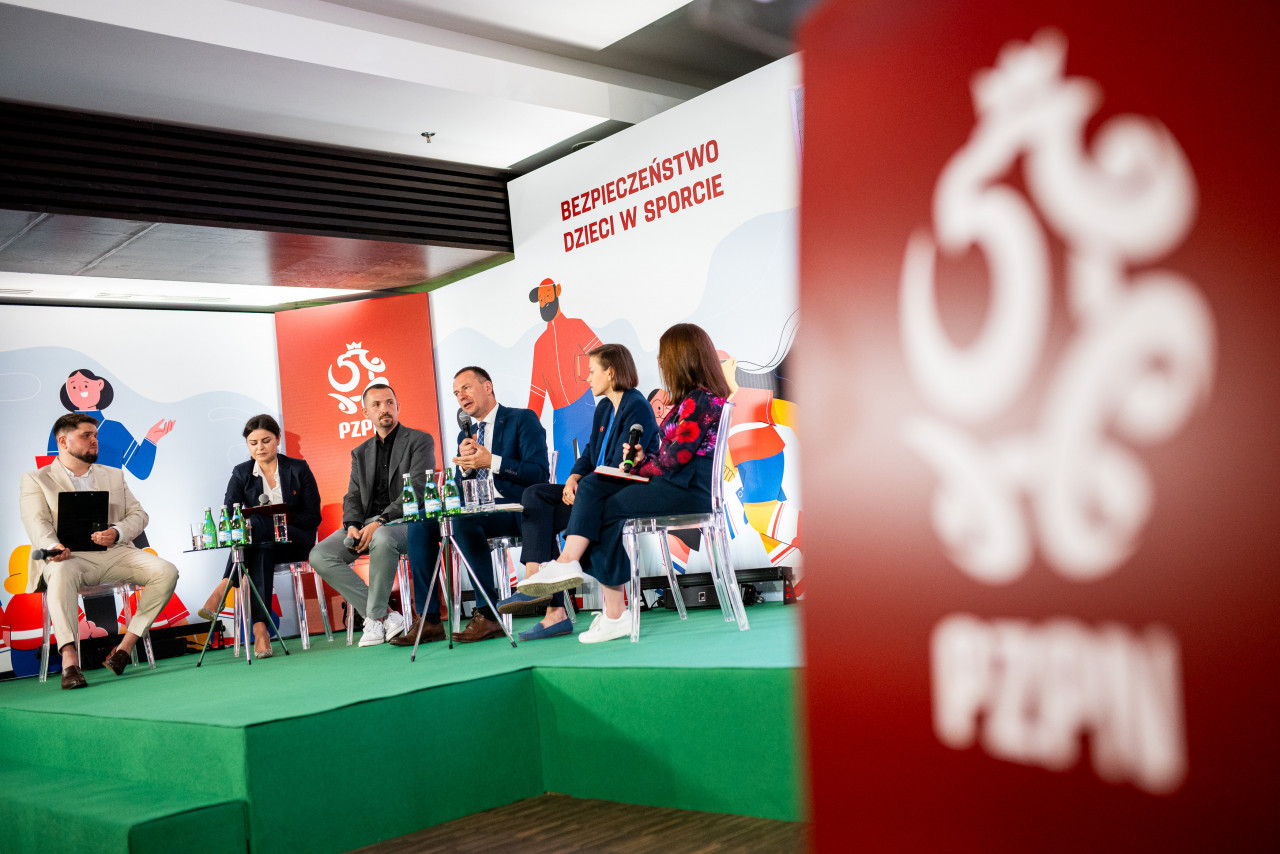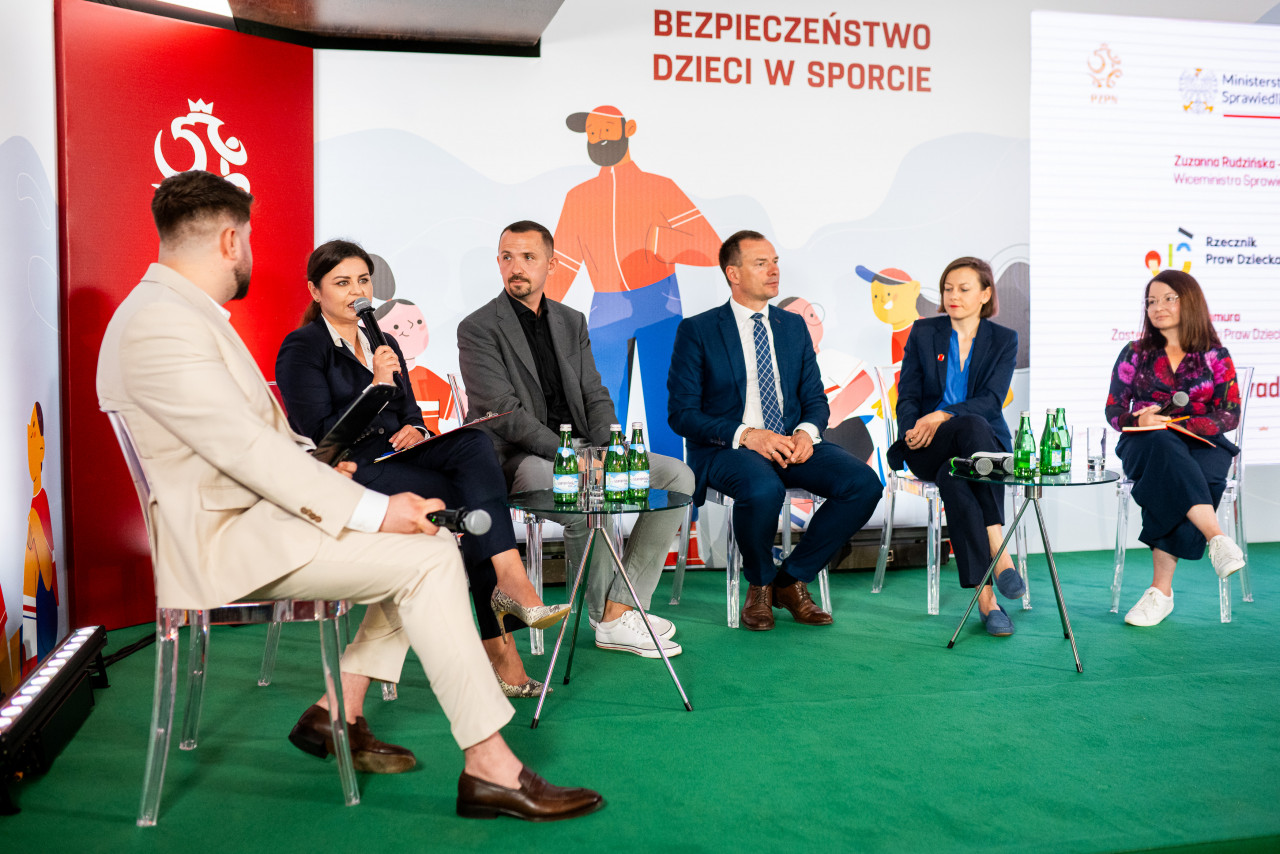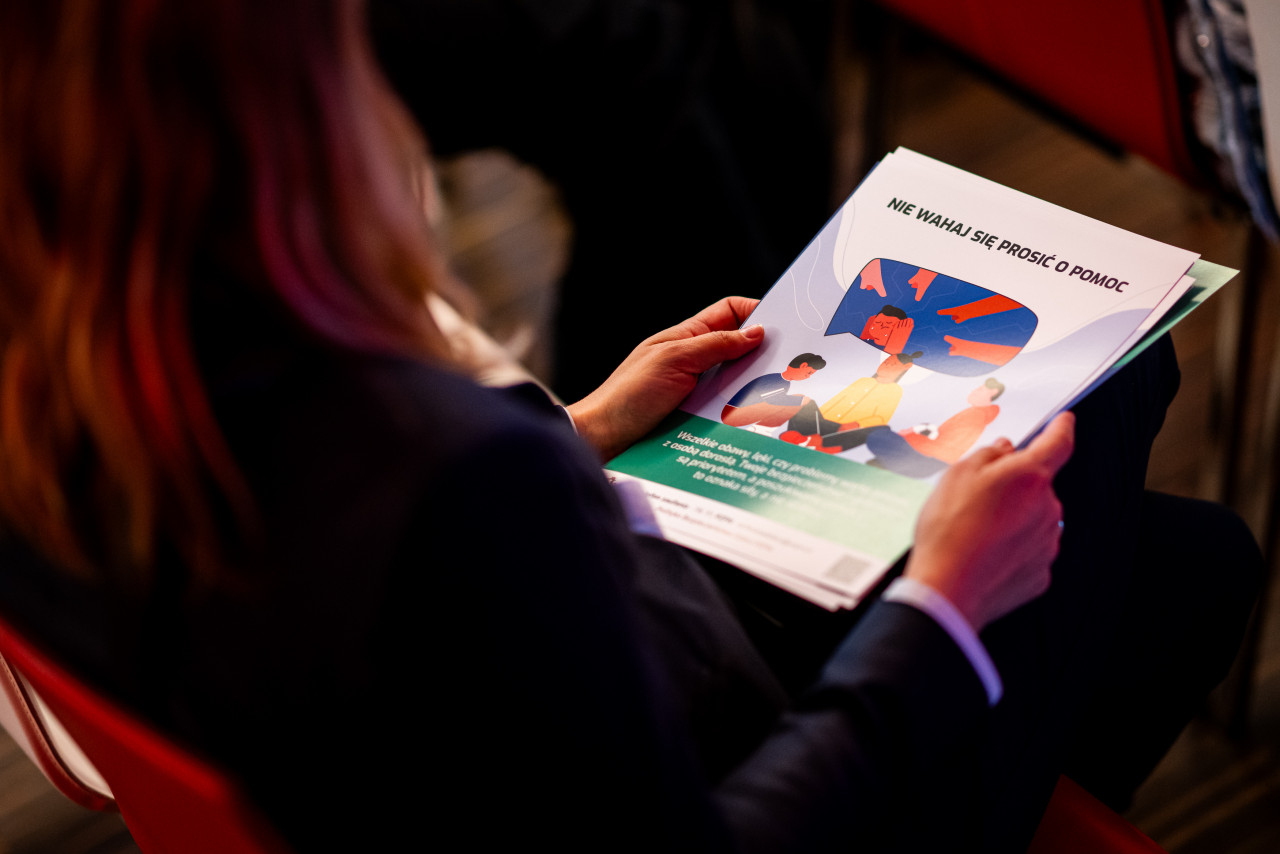NewsAssociation
Child Protection Policy in sport a priority for the Polish Football Association

"The Child Protection Policy is one of the priorities of the Polish Football Association. We are implementing a child protection strategy in all clubs, even the smallest ones, and we can see that this serves as a model for other sports as well. It is up to us adults to ensure that children can really learn and develop, not only in football", said Adam Kaźmierczak, Vice President of PZPN for Amateur Football, who opened the Conference on Children's Protection in Sport. The event took place at the National Stadium during the Tymbark Cup Finals.
In June 2023, the Polish Football Association adopted a Child Protection Policy. Therefore, the anniversary of this event was an excellent opportunity for representatives of the Ministry of Sport and Tourism, the Ministry of Justice, the Ombudsman for Children, the Dajemy Dzieciom Siłę Foundation and sports associations and clubs to meet. "We want children to know how to react to different types of abuse", stressed Marta Furmańczuk, child protection coordinator at the Polish Football Association.
However, the Polish Football Association's efforts to improve the safety of the youngest have been ongoing for much longer. "In 2021, we issued recommendations on child protection, which marked the beginning of our efforts. Two years ago, UEFA introduced an online course for coaches on child and youth protection. Of all the UEFA member countries, we have the highest number of completed courses, as every coach who wants to obtain or renew a licence has to undergo this training", Furmańczuk explained. She added that the PZPN introduces requirements for clubs and football entities, such as those related to the appointment of child protection coordinators in organisations, conducts training and education in this area, and responds to reports related to child protection in football. Anyone can report abuse of minors to the email address ochronadzieci@pzpn.pl.
In the second part of the conference, a panel discussion was held with the participation of Zuzanna Rudzińska-Bluszcz, Deputy Minister of Justice, Piotr Borys, Deputy Minister of Sport and Tourism, Adam Chmura, Deputy Ombudsman for Children, Renata Szredzińska, President of the Dajemy Dzieciom Siłę Foundation, and Agnieszka Syczewska, Legal Advisor in the Office of the Secretary General of the Polish Football Association.

The starting point for the discussions was a report prepared by the Dajemy Dzieciom Siłę Foundation, which shows that 90% of young adults who have played sport in the past have experienced physical, emotional or sexual abuse. The most common abuse was from other players, but as many as 60% of respondents had experienced violence, especially emotional one, from a coach. "What fosters abuse in sport is the very high pressure to succeed that comes from all directions. It is also internal, because athletes, wanting to fulfil their own and their environment's expectations, endure much more than they should"player, explained Renata Szredzińska.
As other factors that increase the risk of abuse in sport, the President of the Foundation mentioned a sense of loyalty to the team, which means that only 9-20% of abuse is reported by child victims. "This is why we need to convince young people that reaching out for help shows strength, not weakness. The myth of weakness must be fought. We are undertaking a number of activities in this regard, because we all need to benefit from what makes sport so great, but for this we need a safe environment", noted Adam Chmura.

One of the measures for the protection of children is the PZPN Child Protection Policy introduced exactly one year ago. "The document and all our materials are published on the pzpn.pl. We encourage you to use our models. The key is to make these policies work in practice. The requirements of the law colloquially known as Lex Kamilek include the verification of personnel working with children on criminal records, but in our view this is not enough. A clean criminal record is no indication of competence to work with children. Elements of the child protection policy should already be used at the stage of staff recruitment and later during the evaluation of the work. We see that clubs have taken the subject seriously, with the Provincial Football Associations raising questions, comments, concerns. We are pleased, because this shows a responsible approach to the issue", emphasised Agnieszka Syczewska. "It is important that everyone involved in children's and youth sport understands their role, the responsibilities involved and how to react to manifestations of inappropriate behaviour", emphasised the Legal Advisor in the Office of the Secretary General of the Polish Football Association.
For effective child protection, systemic measures are also needed. On 15 February, the so-called Kamilek from Częstochowa Act came into force, and the government is already preparing further amendments. "Work on the Sports Act is underway, and it has already been subjected to the first consultation. We want to implement systems for the protection of minors and anti-discrimination and equality into every club and association. In order to do this, a system is needed and we intend to prepare it on the basis of a law that will hopefully come into force by the end of the year", admitted Deputy Minister of Sport and Tourism, Piotr Borys. He also drew attention to the issue of increasing public awareness. "Emotional pressure standards that were present 10 years ago are today already regarded as an element of danger due to the shifting boundary of sensitivity. Adults need to recognise and be aware of this. The most important thing is cooperation, exchange of information, good practices and widespread training to build widespread awareness", said Piotr Borys.

Zuzanna Rudzińska-Bluszcz also spoke about the key role of public awareness. "We are at a crucial moment for Polish society. It is great that we are meeting here during the finals of the Tymbark Cup, in which girls play equally with boys. A mental transformation is taking place in Poland. Only a decade ago, the issue of emotional abuse was a very niche topic, but now it is commonly treated as just as great a threat as physical abuse", the Deputy Minister of Justice noted. The law has built the foundation, and our task is to put this into practice. Standards for the protection of minors should not be seen as an obligation but an opportunity for the community to lean into the issue and regulate it together.
"It is crucial that we all see each other and maintain a dialogue. Individual institutions assume responsibility for specific duties, the Ministry of Justice creates certain legal frameworks and these are then implemented by, for example, sports associations, and it is very important that, when creating regulations, we recognise the practical needs and receive feedback later on how these regulations are implemented.
What we are improving a lot is also the treatment of whistleblowers. Today we talk about the heroism of whistleblowers, while only a decade ago they were called rats and informers", Zuzanna Rudzińska-Bluszcz noted. The Deputy Minister of Justice agreed with the Deputy Minister of Sport and Tourism, Piotr Borys, who stressed that whistleblowers should be protected both legally and environmentally.
"A great deal has already been done to improve children's protection, but we cannot stop", stressed Renata Szredzińska, President of the Dajemy Dzieciom Siłę Foundation.
The panel discussion concluded with declarations of interdepartmental cooperation involving sports associations and all institutions that care about child protection, especially in education and training.
